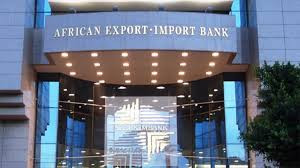
He had a quote from Margaret Thatcher, just like his boss who, only a week before had cooed to a Western audience in the Financial Times, highlighting Britain first female Prime Minister as his lodestar. The theme of his budget was Austerity for Prosperity, apparently drawing inspiration from 19th Century British philosopher John Stuart Mill.
guest column: Alex T Magaisa
Finance minister Mthuli Ncube quoted Mill’s words: “I have learned to seek my happiness by limiting my desires, rather than in attempting to satisfy them”. It remains to be seen whether Ncube’s new colleagues understand the message and, more importantly, whether they are capable of containing their desires. One of Mill’s greatest contributions was his thesis on liberty, contained in an essay of the same title. Zanu PF has never quite embraced the idea of individual liberty.
Ncube’s maiden budget contains a few symbolic gestures of sacrifice on the part of those in government but, ultimately, it is the common person who must bear the burden of elite profligacy.
One of those gestures is the 5% wage cut for senior civil servants, from director level right up to the President himself.
It looks great at first sight, except when you peel off the mask, and realise that the bulk of remuneration at that level is not in the form of wages, but allowances, particularly travel and subsistence allowances.
And their penchant for travel is legendary. The result is that the wage cut looks more like tokenism; gesture politics to lull the masses into believing that those at the top are also taking the pain, when in reality it’s a mere slap on the back of an elephant.
Budget deficit
- Chamisa under fire over US$120K donation
- Mavhunga puts DeMbare into Chibuku quarterfinals
- Pension funds bet on Cabora Bassa oilfields
- Councils defy govt fire tender directive
Keep Reading
A big problem for Zimbabwe remains an unsustainable budget deficit, which at a projected $2,86 billion is 11,7% of the gross domestic product (GDP). The GDP is a measure of the monetary value of all the goods and services produced in the country within a specific period, usually measured on an annual basis. It is essentially a measure of all the economic activities and production in a country.
Economists see a high GDP as a good indicator of a country’s performance. A budget deficit basically means the country is spending more than it is producing.
It’s a burden on the economy. It’s important that we reduce our budget deficit so that it’s a far lower percentage of the GDP.
The problem is that our government’s appetite for spending is excessive. According to the minister, Zimbabwe is expected to collect revenues amounting to $5,5 billion this year whereas expenditure is expected to be $6,5 billion.
When then Finance minister Patrick Chinamasa presented the national budget last year, the target for expenditure in 2018 was $4,1 billion. This means the government has spent $2,4 billion more than its own target. This is reckless. Yet it is not an exception. That is how it has been over the years. Government overpromises, but always underperforms. This is why economists say it lacks fiscal discipline.
Two of the items that account of excessive expenditure are the huge civil service wage bill and support for command agriculture, a government programme to support agricultural production. Command agriculture has been touted as a programme that is funded by Sakunda Holdings, but at the end of the day, the bill is picked by the taxpayer, as the budget revealed.
Ncube is alive to the fact that the budget deficit is a huge problem. To fund its spending habits, the government has had to rely on an overstretched the overdraft facility with the Reserve Bank of Zimbabwe, the central bank. At a projected $2,5 billion, the minister admits that the overdraft is “well above the stipulated statutory limit”.
Notorious Bills
This is because government has had to rely on another source of funding: Treasury Bills (TBs) and bonds. Stripped to the bare bones, TBs are essentially a way of printing money.
To express it more bluntly, the government has been printing money through issuing TBs. When government has run out of money, it offers a bank a TB in return for cash. The bank can wait for the TB to mature upon which it redeems it for cash. Alternatively, the bank can sell the TB to another investor.
The TB is considered a safe form of investment since the government is the debtor. This means it’s a popular investment.
The problem is that banks end up lending to government in return for TBs, diverting money that could have been lent to the private sector for more productive activities. The other problem is that the government is essentially printing money through these TBs. The moment it issues a TB, it has basically printed money. In our case, the problem is there is nothing to back it up.
Since the coup, the government has issued TBs and bonds worth at least $2,5 billion. This is captured in paragraph 56 of the budget statement, where the minister states: “During the period January to August 2018 alone, government issued TBs and bonds worth $2,5 billion”.
What was this money used for when there is nothing to show for it and it was not even the heavy agricultural season?
It is more likely that Zanu PF went on a money printing spree to fund its election campaign.
Now, under the guise of “austerity for posterity”, Zimbabweans are essentially being asked to carry Zanu PF’s election bill. It’s cruel.
The annual bonus
Another issue that has been the centre of disputes over the years is the annual bonus for civil servants. When Chinamasa tried to abolish it one year ago, he was rebuked by his then boss, former President Robert Mugabe, and the measure was promptly reversed. Ncube has not gone as far as Chinamasa, acknowledging instead, that government recognised the bonus as an important part of the remuneration package of civil servants.
Ncube appears to have chosen a compromise. The bonus is kept, but it will be calculated on the basic wage only minus allowances. In the past, it was calculated on the basis of the basic wage plus allowances, he said. He has taken a safe, middle-of-the-road approach which might please both the abolitionists and the populists. Still, critics think it’s another pointless gesture. Ncube might have helped his case with more specific figures. How much is being saved due to these measures — wage cuts for senior civil servants and bonus reductions for all civil servants? The devil is in the numbers, critics say.
Can the government drop these bad habits — overspending and printing money?
Ncube knows there is no way out. He uses a quote from an American consultant to say that this should stop. “… nothing is less productive than to make more efficient what should not be done at all,” Ncube quotes Peter Drucker, the consultant as saying. Ncube has to be bolder than that and make it clear that printing money via TBs must stop. Later in the budget he proposed some controls on the issuing of TBs, including a measure that they should be issued through an auction system rather than via private placement. But Ncube’s true test will arrive when he must deal with his colleagues’ demands to print money. Will he be able to withstand their pressure when they ask him to issue new TBs? That remains to be seen.
Wage bill
In order to reduce the debilitating budget deficit, the government has to cut spending and raise more revenue. One area is to reduce employment costs. Ncube proposed to abolish the notorious youth officers’ posts around the country. But this is not the first time such a promise has been made. Last year, Chinamasa made the same proposition, but it was not seen through. The youth officers went to court and challenged their dismissal.
The legalities notwithstanding, it is likely that politics was a bigger factor in their stay in office. Youth officers have traditionally played an important utility role in Zanu PF’s election campaigns. They were never going to go in an election year. They did their job and even if they go this time, it is more likely than not that those posts or similar will return before the next election.
Ncube also proposed to eliminate the problem of ghost workers in the civil service by introducing a new system of biometric registration and identification. He believes this would ensure that the government only pays existing humans and eliminate wastage through ghost workers. It sounds like an interesting proposition, although much will depend on its implementation and monitoring.
The fact of the matter is that there have been previous civil service audits, for which fees were paid, but government simply did not act. The issue of ghost workers is more than a technical matter. It is highly political because it facilitates patronage, rent-seeking and corruption. It is those vices that Ncube has to grapple with.
The issue of the wage bill is not new. It was in Chinamasa’s budget statements time and again. It is more likely that it will be in the next budget, if Ncube is still in his role. It’s a perennial problem. During the government of national unity, efforts to deal with the wage bill through the civil service audit and reducing the workforce were frustrated by Zanu PF’s resistance. The problem remains today and is unlikely to go away soon.
Taxing the masses
Ever since he assumed office last September, Ncube has placed heavy emphasis upon taxes and raising revenue. His measures have focussed largely upon expanding the tax base and also improving the tax collection system. This is probably because he is conscious of the great difficulties of reining in his bosses when it comes to spending. He might not be able to control that, but he thinks he can control and influence revenue collection.
One of his first and most unpopular measures was the 2% tax on electronic money transfers which raised a lot of dust and outcry when it was introduced. He has promised to “fine-tune” it after some consultation which could lead to more exemptions. This would not be the first time that he has had to revise the unpopular tax. It suggests that he is listening but it also shows that he introduced it with unnecessary haste when he should have consulted first. It is not good tax policy to introduce taxes without proper consultation.
There are tax-raising measures in the latest budget that will also have an impact on prices and cost of living. One is the rise in excise duty on fuel products — seven cents per litre on diesel and paraffin and 6,5 cents per litre on petrol. His rationale is that there are distortions in the fuel market which means Zimbabwe’s fuel is now cheaper compared to other countries in the region. Consumers, especially transiting vehicles are taking advantage of this and hence an unwarranted and unsustainable increase in fuel consumption.
While the explanation appears to make sense, it has serious consequences for prices of goods and services in the economy. Fuel is a critical input for producers and service providers and it has been the pattern that an increase in fuel costs has led to an increase in prices. This is because producers and retailers and service providers generally pass on the cost to consumers.
The same effect is likely to be seen in respect of the requirement to pay import duty in foreign currency for a raft of goods that are listed in an annexure to the budget statement. It’s a wide array of goods, from hair products to canned food, which make up a significant part of the shopping basket. If retailers have to pay import duty in foreign currency, they will either charge for the goods in foreign currency or at equivalent rates in the local surrogate currency (bond notes/RTGS). Since foreign currency is scarce, consumers are forced to pay at high prices charged in surrogate currency.
Yet the government maintains the fallacy that the surrogate currency is equal to the US dollar. By charging import duty in scarce foreign currency which can only be accessed at high rates on the black market the government has effectively raised the tax on those imports. This will also raise the cost of those goods, which will be passed on to consumers, with inflationary consequences. If consumers choose to trade surrogate currency for the US dollar, they will fall foul of the law and face criminal sanctions.
Currency chaos
The government’s confusion is no more evident than in its policies in relation to currency. For a few years after adoption, the multi-currency regime seemed to work without great difficulty. Maybe that was an illusion since the pattern of foreign currency haemorrhage was already evident at that time. However, confusion has reigned ever since the government introduced the surrogate currency in the form of the bond note, which it declared and has insisted is equivalent to the US dollar. The same applies to the money printed through TBs and real time gross settlement (RTGS) balances. The market is not fooled. It knows the surrogate currency is weaker than the US dollar, despite government’s rigid stance. In this budget, the confusion manifests through internal contradictions.
For example, while insisting that the multi-currency is operational and the surrogate currency is equal to the US dollar, the government is demanding import duty on cars and selected goods in foreign currency only. While insisting that the currencies are the same, the government demands that taxes for goods sold in foreign currency must be remitted in foreign currency only. The government is not only acknowledging that some retailers are charging in US dollars only but that it is better to get taxes in that currency that in the form of the so-called equivalent surrogate currency.
Ncube is well aware of the disparity between the surrogate currency and the US dollar and the fallacy of saying they are equal but he seems constrained and cannot do what he would really prefer to do which is to phase out the surrogate currency. In the past, he has said that market forces will do their job. He might not have said so in his budget statement, but that appears to be the course the country is taking, albeit in an understated way. After all, government service providers, including tax authorities, are demanding foreign currency payments ahead of the surrogate currency. With the government rejecting its own surrogate currency, it would be utterly imprudent for anyone to accept surrogate currency.
Price escalation
The demand for duty in foreign currency will naturally raise demand for it in the market. If a retailer must pay duty in foreign currency, then they are totally justified to charge for goods in foreign currency. This means consumers must also look for foreign currency. However, a recent presidential decree criminalises currency trades on the parallel market. It won’t stop the black market for currency. Rather, it will only drive it deeper underground, beyond the clutches of the law. But how does the same government whose policies create demand for foreign currency criminalise conduct which is motivated by the desire to meet that demand? It seems the government is, once again, using the wrong weapon to solve the wrong problem.
Another tax measure which could have broader implications is the road accident levy. It sounds like a good idea because the purpose is to help compensate victims of road accidents.
However, it’s not altogether clear that the way it is proposed will meet the purpose without raising the cost of insurance and consequently, services for consumers. The minister wants 5% of third party insurance cover to be remitted to an Accident Compensation Fund. This cuts a stream of revenue to insurance companies.
This means the insurance companies might respond by raising insurance premiums to cover their losses. Commercial transport providers will pass on the cost to consumers. The issue of compensation for victims of accidents is important but equally critical are measures to reduce accidents on the roads. There is need for serious polic y intervention in this regard, especially on the law enforcement and behavioural side, but that is probably beyond the remit of a Finance minister.
Devolution
The budget makes some important statements on devolution which commendably are backed by some figures and do not threaten the principle. In his last budget, Chinamasa appeared to undermine devolution when he suggested that parliament might have to review the constitutional provisions that provide for that system of government. In his maiden budget, Ncube stated that the government seeks to operationalise support to provinces in compliance with the constitution which requires at least 5% of government revenues to provincial councils. He has earmarked $310 million to the provinces.
Nevertheless, Ncube’s proposition to support devolution is not backed by political will of his bosses who have stalled on implementation of devolution since 2013. None of the provincial councils have been established. None of the provincial chairpersons have been elected. Instead, Mnangagwa, like Mugabe before him, has actively circumvented and undermined the constitutional scheme of devolution by appointing Ministers of State for provinces. This raises the question: if Ncube is going to allocate $310 million to the provincial councils, where do ministers of State fit in? Hopefully, MPs will quiz the minister on this issue when debate on the budget begins.
Fantasy of medical tourism
There are some noble measures, such as the removal of import duty and value-added tax (VAT) on sanitary wear. It responds to a long campaign from anti-poverty campaigners, gender activists and women and girls’ rights groups to remove taxes that raise the cost of such basic and necessary products. In future, they might go one better and ensure free provision of such important products especially in poor, rural communities where access is far more limited. Even with the removal of import duty and VAT, these products will remain beyond the reach of many women and girls. An argument has been made that if condoms are freely available, there is good ground to support free provision of sanitary wear.
However, parts of the budget statement read like something plucked out of a fantasy book. At paragraph 241, Ncube says: “In general, government is desirous to see the development of a medical tourism industry in the country”. How does a country which cannot even provide the most basic drugs even begin to dream of hosting medial tourists?
Medical tourism is something that countries that countries with advanced health-care systems experience and sometimes complain about when foreigners visit them merely to seek medical treatment. It’s an industry when they pay, but a burden when health care is free.
But what makes the statement even more bizarre and out of touch with reality is that both the current and former president are well-known medical tourists, who prefer other countries’ health-care systems than Zimbabwe’s own. Mugabe regularly flew to Singapore (and still does in retirement at taxpayers’ expense), while Mnangagwa is a frequent medical tourist in South Africa. Both of his deputies have also spent time as medical tourists across the Limpopo. Why not get the basics right first before creating fantasies about developing a medical tourism industry?
Land compensation
Another piece of tokenism can be seen in relation to the historically contentious issue of compensation for land seized during the fast-track land reform programme. The government has offered $53 million as part payment for an obligation that is likely to run into billions of dollars which the government admits it does not have at present.
However, although the $53 million is a mere drop in the ocean, it serves as a gesture of acknowledgment of debt. It is a signal directed at international community which has the land issue as one of key areas to be satisfied in the re-engagement efforts. The gesture might reassure them that the will is there but it will also upset those who believe there is no need to pay such compensation.
Privatisation
That the government is desperate for money is a well-known fact. Privatisation of parastatals will be a source of income. But it has been promised for many years without delivery. It defies economic sense that government now owns or controls two mobile network operators in NetOne and Telecel. Both have not been able to meet their licence fees in full, which gives them an unfair advantage over their rival, Econet. Both have not fulfilled their full potential. It makes more sense to sell off at least one of them. Not only would it raise cash for the government but it would also open space for a private player that would give competition to Econet and therefore help improve the quality of service and probably even reduce prices for consumers. Surprisingly, the government has listed both NetOne and Telecel as candidates for partial privatisation only.
Traffic penalties
The government has also raised penalties for road traffic offences. The maximum possible penalties were $30 for traffic offences, which the minister thinks is too low. Even if it is, the increase appears exorbitant. The maximum possible penalty will now be $700. Many people fin d no sense in this increase in a country where average wages are less than $500. Just like the 2% tax on money transfers, these proposed penalties which will require a fundamental change in the Road Traffic Act appear to have been made arbitrarily without any serious consultation or consideration of prevailing economic circumstances.
It is important to promote safety on the roads, but measures must be reasonable and proportionate, taking into account the economic conditions in the country. Everyone knows the government is desperate for cash and this could be a source of non-tax revenue, but the high penalties are more likely to open rent-seeking opportunities for police officers. They will extract small rents from motorists, who, reluctant or unable to pay high penalties will have an incentive to pay such rents. In other words, it’s a policy measure that is likely to encourage, rather than stop corruption.
Conclusion
There are a few positives but the vagueness and contradictions are unhelpful. Supporters will say currency issues are monetary issues that fall under the remit of the central bank but Zimbabwe’s circumstances make it impossible for the Finance minister to ignore them. The country has a multi-currency regime, which includes currencies of other countries, which makes it futile to designate certain currencies as foreign. The fact is those foreign currencies are legal tender in Zimbabwe. The currency confusion needs to be cleared. It is unhelpful to consumers and businesses alike.
A lot will depend on the government’s willingness to comply with the call to curtail spending and the printing of money through rampant issuing of TBs. One can’t place much value on promises and pledges. They have been made before, without corresponding compliance. Meanwhile, the taxes on the meagre resources of the masses continue to rise. The income tax cuts are offset by the increases in other taxes, especially fuel tax which will cause an escalation of prices of other commodities.
Unless the government is serious, Ncube’s pledge of “Austerity for Prosperity” could turn into “Austerity for Posterity” — a nightmarish inheritance for future generations.
Alex Magaisa writes in his personal capacity. This article first appeared on BSR











